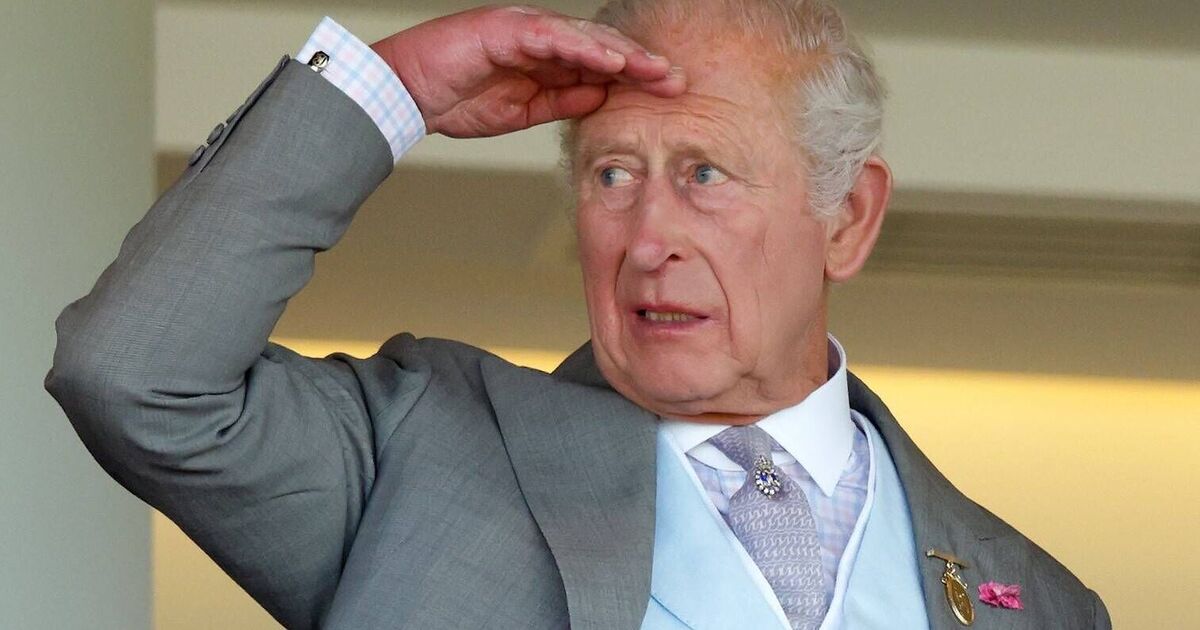Analyzing Trump's Peacebrokering: Unveiling His True Motivations

Welcome to your ultimate source for breaking news, trending updates, and in-depth stories from around the world. Whether it's politics, technology, entertainment, sports, or lifestyle, we bring you real-time updates that keep you informed and ahead of the curve.
Our team works tirelessly to ensure you never miss a moment. From the latest developments in global events to the most talked-about topics on social media, our news platform is designed to deliver accurate and timely information, all in one place.
Stay in the know and join thousands of readers who trust us for reliable, up-to-date content. Explore our expertly curated articles and dive deeper into the stories that matter to you. Visit Best Website now and be part of the conversation. Don't miss out on the headlines that shape our world!
Table of Contents
Analyzing Trump's Peacebrokering: Unveiling His True Motivations
Donald Trump's presidency, a period marked by significant domestic and foreign policy upheaval, saw him unexpectedly take on the role of a peacebroker in several international conflicts. From the Abraham Accords normalizing relations between Israel and several Arab nations to his attempts at negotiations with North Korea, Trump's involvement sparked considerable debate – was he genuinely committed to peace, or were other motivations at play? This article delves into the complexities of Trump's peace initiatives, analyzing his actions and statements to unveil his true motivations.
The Abraham Accords: A Triumph of Diplomacy or a Strategic Gambit?
The Abraham Accords, arguably Trump's most significant foreign policy achievement, normalized relations between Israel and several Arab nations, including the United Arab Emirates, Bahrain, Morocco, and Sudan. While hailed by some as a landmark achievement in Middle Eastern diplomacy, critics questioned the long-term viability of these agreements and the underlying motivations.
-
Strategic Partnerships: Some argue that Trump prioritized forging strategic alliances with key players in the Middle East, bolstering his "America First" agenda and potentially gaining a foothold against regional rivals like Iran. The agreements offered Israel valuable diplomatic gains and strengthened its position in the region, aligning with Trump's pro-Israel stance.
-
Domestic Political Gains: The success of the Abraham Accords provided Trump with a significant foreign policy victory to showcase domestically, particularly appealing to his evangelical Christian base and bolstering his image as a decisive leader.
-
Legacy Building: Beyond immediate strategic gains, the accords could be viewed as a legacy-building project, securing Trump's place in history as a significant figure in Middle Eastern peace efforts.
North Korea Negotiations: A Calculated Risk or a Public Relations Stunt?
Trump's high-profile meetings with North Korean leader Kim Jong Un presented a different case study. While the summits generated significant media attention and raised hopes for denuclearization, concrete progress remained elusive.
-
Showmanship and Image: Critics suggest that Trump's approach prioritized the optics of the summits over substantive negotiations. The dramatic nature of these meetings served to elevate Trump's image as a bold and unconventional leader on the world stage.
-
Limited Substantive Outcomes: Despite the fanfare, the denuclearization talks yielded limited tangible results. North Korea maintained its nuclear weapons program, and sanctions remained in place, raising questions about the effectiveness of Trump's approach.
-
Distraction from Domestic Issues: Some analysts argued that the North Korea negotiations served as a distraction from pressing domestic issues, allowing Trump to shift the focus away from controversies at home.
Analyzing the Common Threads: Beyond the Specific Deals
While the Abraham Accords and the North Korea negotiations differ in their outcomes, certain patterns emerge in Trump's approach to peacebrokering. A consistent element seems to be the emphasis on personal diplomacy, direct engagement with foreign leaders, and a willingness to bypass traditional diplomatic channels.
Conclusion: A Multifaceted Approach to Peace
Analyzing Trump's peacebrokering efforts reveals a complex picture, one not easily categorized as simply pro-peace or opportunistic. His motivations likely encompassed a blend of strategic interests, domestic political considerations, and a desire to shape his historical legacy. Further research and analysis are necessary to fully understand the lasting impact of his interventions and whether they genuinely contributed to long-term peace and stability in the regions involved. Future studies should delve deeper into the long-term consequences of these agreements and the impact on regional power dynamics. What are your thoughts on Trump's legacy as a peacebroker? Share your perspective in the comments below.

Thank you for visiting our website, your trusted source for the latest updates and in-depth coverage on Analyzing Trump's Peacebrokering: Unveiling His True Motivations. We're committed to keeping you informed with timely and accurate information to meet your curiosity and needs.
If you have any questions, suggestions, or feedback, we'd love to hear from you. Your insights are valuable to us and help us improve to serve you better. Feel free to reach out through our contact page.
Don't forget to bookmark our website and check back regularly for the latest headlines and trending topics. See you next time, and thank you for being part of our growing community!
Featured Posts
-
 Against All Odds Favorite Journalism Wins 2025 Preakness Stakes
May 19, 2025
Against All Odds Favorite Journalism Wins 2025 Preakness Stakes
May 19, 2025 -
 Together Alison Brie And Dave Franco Accused Of Copyright Infringement In 17 Million Lawsuit
May 19, 2025
Together Alison Brie And Dave Franco Accused Of Copyright Infringement In 17 Million Lawsuit
May 19, 2025 -
 Lower Us Tariffs Japans Calculated Compromise In Trade Negotiations
May 19, 2025
Lower Us Tariffs Japans Calculated Compromise In Trade Negotiations
May 19, 2025 -
 From Lost To Found A California Womans Miraculous Rescue After 21 Days
May 19, 2025
From Lost To Found A California Womans Miraculous Rescue After 21 Days
May 19, 2025 -
 Go Jos Eurovision Elimination Sparks Outrage Copyright Drama Surrounds Aussie Horror Film
May 19, 2025
Go Jos Eurovision Elimination Sparks Outrage Copyright Drama Surrounds Aussie Horror Film
May 19, 2025
Latest Posts
-
 Why Dont We Tell Jokes At Work Anymore Reader Insights
Jul 08, 2025
Why Dont We Tell Jokes At Work Anymore Reader Insights
Jul 08, 2025 -
 From Despair To Survival The Texas Flood Victims Fight For Life
Jul 08, 2025
From Despair To Survival The Texas Flood Victims Fight For Life
Jul 08, 2025 -
 Jnim In Mali Rise Of Al Qaedas Deadliest African Affiliate
Jul 08, 2025
Jnim In Mali Rise Of Al Qaedas Deadliest African Affiliate
Jul 08, 2025 -
 July 7 Powerball Winning Numbers And 203 Million Jackpot
Jul 08, 2025
July 7 Powerball Winning Numbers And 203 Million Jackpot
Jul 08, 2025 -
 Beyond The Royal Family Drama King Charless Complex Relationship With Sarah Ferguson
Jul 08, 2025
Beyond The Royal Family Drama King Charless Complex Relationship With Sarah Ferguson
Jul 08, 2025
